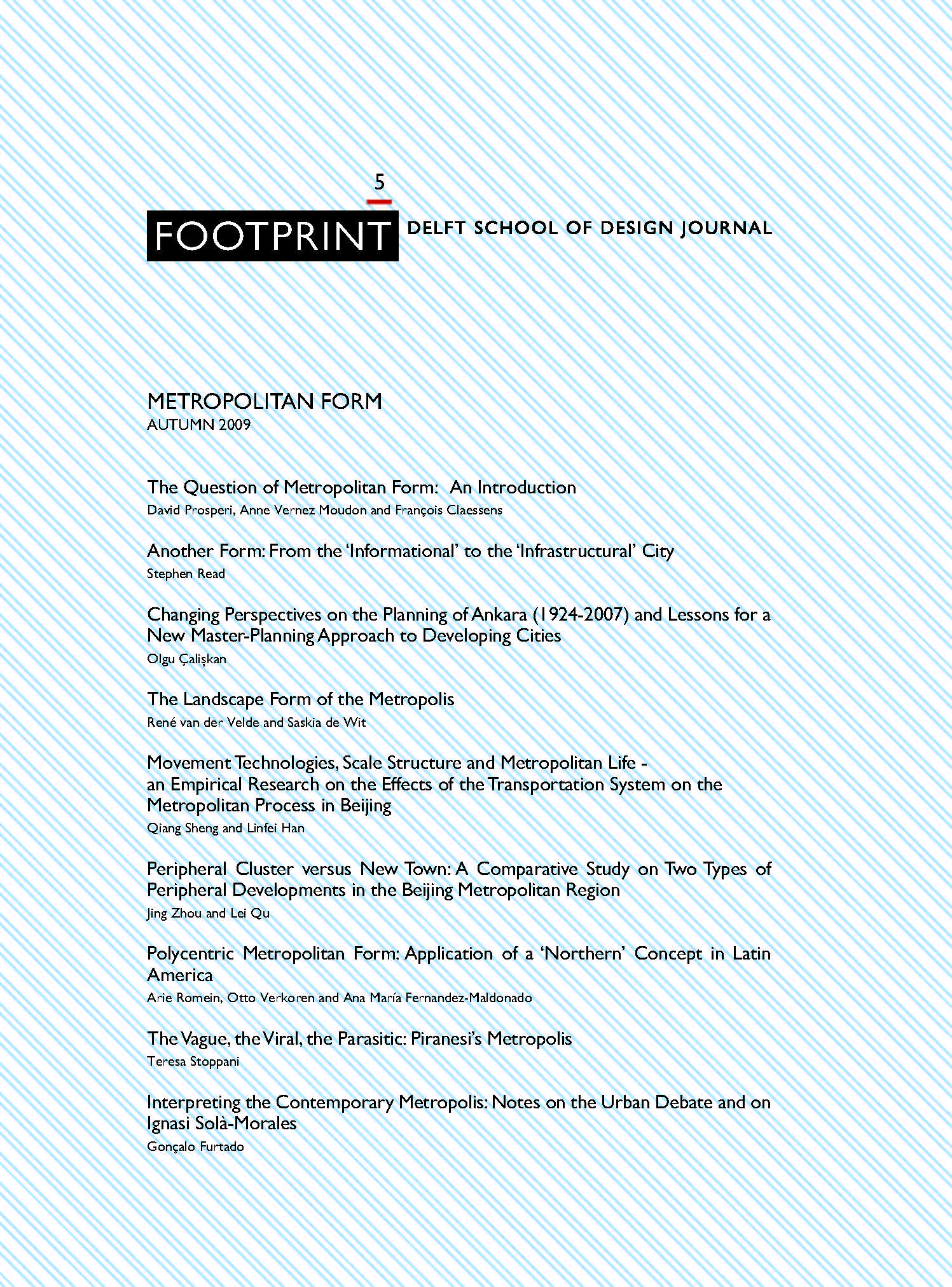Peripheral Cluster versus New Town: A Comparative Study on Two Types of Peripheral Developments in the Beijing Metropolitan Region
DOI:
https://doi.org/10.7480/footprint.3.2.711Abstract
Spatial decentralisation has been a planning goal for Beijing city since 1950s. It had not been fully activated until the mid-1990s, when the suburbanisation process started to accelerate rapidly. Under the influence of joint forces of top-down intervention and market-driven development, several large-scale peripheral clusters and new towns have been built in both near and far suburbs. However, the spatial structure of the city remains to be rather mono-centric, which causes severe urban and environmental problems. In the latest Beijing Master Plan, the metropolitan region is considered as a whole. A polycentric spatial structure is proposed with the aim to consolidate the existing regional centralities as stronger counter-weights to central city.
The aim of this paper is to investigate the spatial social and economic conditions of the existing large-scale peripheral clusters and new towns, to understand their strengths and weaknesses, in order to give concrete spatial recommendations for future transformation of Beijing metropolitan region. The paper is organized as follows. The first part presents a review of morphological transformation process of Beijing metropolis since 1950s till now. Then in-depth analysis and comparative study will be given to two representative cases of – Tiantongyuan and Tonzhou – peripheral residential district and satellite town. Finally useful lessons and spatial recommendations for realizing poly-nuclear regional structure will be elaborated.
Downloads
Published
Issue
Section
License
- Authors retain copyright and grant the journal right of first publication with the work simultaneously licensed under a Creative Commons Attribution License that allows others to share the work with an acknowledgement of the work's authorship and initial publication in this journal.
- Authors are able to enter into separate, additional contractual arrangements for the non-exclusive distribution of the journal's published version of the work (e.g., post it to an institutional repository or publish it in a book), with an acknowledgement of its initial publication in this journal.




